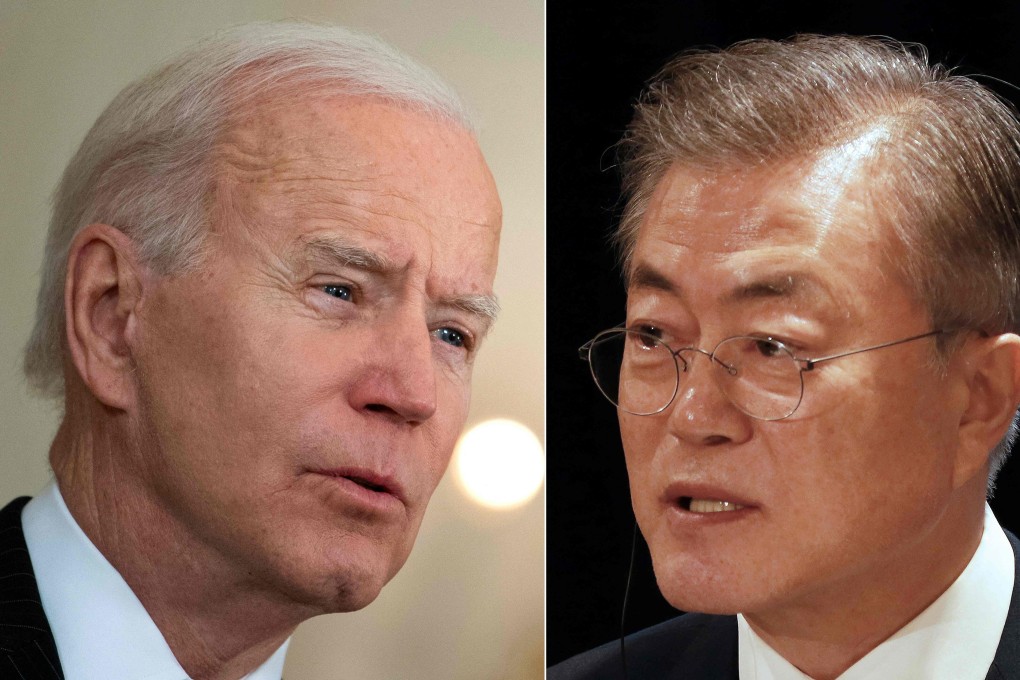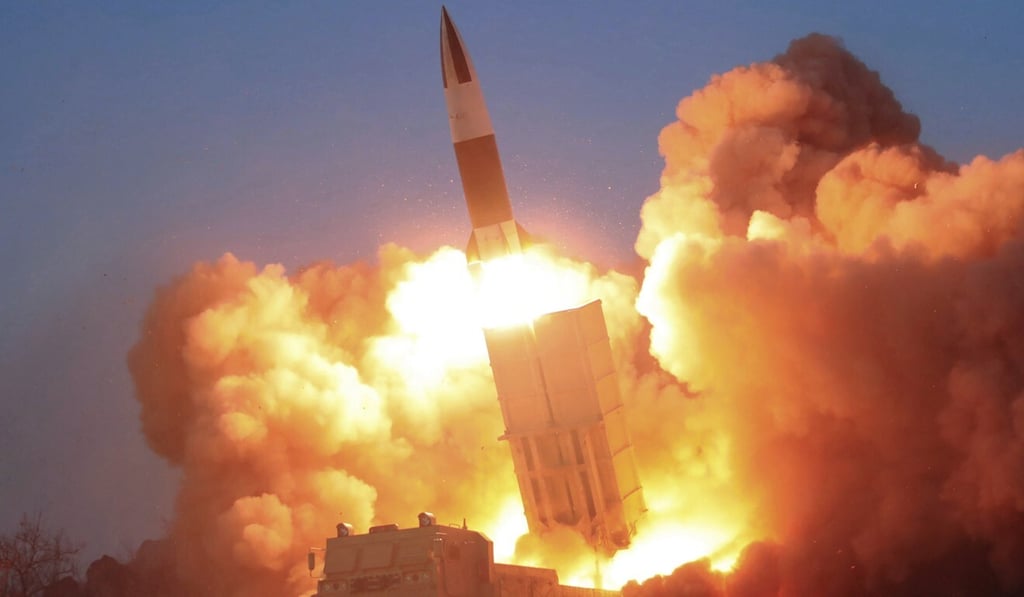Advertisement
US-South Korea summit: will North’s nukes or China top agenda when Joe Biden meets Moon Jae-in?
- The meeting follows the completion of a US policy review that called for a focus on practical diplomatic steps to reduce tensions on the Korean peninsula
- How Seoul can navigate ties with both Washington and Beijing is also likely to have a bearing on discussions during the leaders’ summit
Reading Time:5 minutes
Why you can trust SCMP
8

Park Chan-kyongin Seoul
North Korea’s denuclearisation and how Seoul can navigate ties with both the US and China will loom large as South Korean President Moon Jae-in heads to Washington this week to meet US leader Joe Biden.
The meeting follows the completion of a US policy review that called for a focus on practical diplomatic steps to reduce tensions on the Korean peninsula while maintaining the final goal of removing the North’s nuclear weapons.
Biden, in his first address to a joint session of Congress last month, signalled a tougher line, saying he would work with allies to address threats from North Korea and Iran through “diplomacy” and “stern deterrence”.
Advertisement
But Washington is expected to keep with the agreement struck in 2018 between then-US president Donald Trump and North Korean leader Kim Jong-un at their summit in Singapore, in which both sides pledged “to work toward complete denuclearisation of the Korean peninsula”.
They never agreed on what they meant by denuclearisation and there were no tangible steps for Kim to reduce his arsenal.
Advertisement

Kurt Campbell, Biden’s Asia coordinator, said in a written interview with Yonhap News published on Wednesday that the US policy review had taken “a careful look at everything that has been tried before”.
Advertisement
Select Voice
Choose your listening speed
Get through articles 2x faster
1.25x
250 WPM
Slow
Average
Fast
1.25x